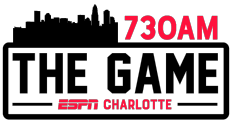Basketball Hall of Famer Bill Walton, an all-time great champion in every sense of the word, including high school, college and the NBA, died Monday following a lengthy battle with cancer, the NBA announced. He was 71 years old.
“Bill Walton was truly one of a kind, NBA commissioner Adam Silver said in a statement. “As a cherished member of the NBA family for 50 years, Bill will be deeply missed by all those who came to know and love him.”
An American renaissance, Walton led a remarkable life on and off the court, excelling in basketball and made his mark in the counterculture scene of the late 1960s and early 1970s. He remained entrenched with both throughout his life as basketball player and TV analyst and lifelong fan of the Grateful Dead, Bob Dylan and Neil Young.
At 6-11, he was one of the most skilled and versatile big men to play the game. He defended, rebounded, blocked shots, passed and scored. He was the definition of a stats stuffer, averaging 13.3 points, 10.5 rebounds 3.4 assists and 2.2 blocks in 10 seasons and was robbed of prime years due to foot and back injuries. He missed the entire 1978-79, 1980-81 and 1981-82 seasons.
Walton’s resumé in limited time could go against anyone’s despite the debilitating injuries. Following a standout career at UCLA where he won two NCAA titles, under John Wooden, one of the great influences in his life, Walton became the No. 1 pick by the Portland Trail Blazers in the 1974 draft. He led the Blazers to the 1977 NBA championship, earning the Finals MVP. His stat line: 18.5 points, 19 rebounds, 5.2 assist and 3.7 blocks while shooting a red hot 54.5% in a six-game series against the Philadelphia 76ers.
The next season, he took home the regular-season MVP honors after averaging 18.9 points, 13.2 rebounds, 5.0 assists and 2.5 blocks.
As one of the best of his era, he accumulated the accolades. He was a two-time NBA champion, two-time All-Star, two-time All-NBA performer, two-time All-Defensive selection, the 1985-86 Sixth Man of the Year with the Boston Celtics and named one of the NBA’s 75 greatest players.
What he learned from UCLA and Wooden, the NBA and the Celtics and the Grateful Dead and Dylan were intertwined into how Walton lived his life.
He once wrote of Wooden: “While our practices were the most demanding endeavors that I’ve ever been a part of, so physically, emotionally, mentally and psychologically taxing, there is always the sense of joy, of celebration and of people having fun playing a simple game. Always positive, always constructive, John Wooden drives us in ways and directions that we are not aware of, always with the goal of making us better.”
He combined three disciplines, Zen tranquility and meditation with a warrior’s spirit. He mingled and mixed with hippies and pro athletes. He delivered assists to Larry Bird and partied with Jerry Garcia, Bob Weir and Mickey Hart. He loved the music, the songs and he especially loved the lyrics. He pulled a line from the Dead’s Scarlet Begonias just as easily as he could recite a poignant line from Dylan’s Boots of Spanish Leather.
Known as Grateful Red, he was in the audience for hundreds of Dead shows, and in 1985, he took members of the Celtics, including Bird, Kevin McHale and Rick Carlisle, to a Grateful Dead concert in Worcester, Massachusetts.
“The Celtics and the Grateful Dead represent so much of everything I believe in, live for and try to do with my life,” Walton told USA TODAY Sports in 2020. “Because of the culture Red (Auerbach) had built, the Celtics were a family organization. The Grateful Dead, that’s a family as well. They both have the ability to inspire, encourage and to allow you to be you and to become something that is bigger and better and more important than you as an individual.”
Walton once was asked what his favorite Dead song was, and with a mixture of incredulity and passion (but more passion), he replied, “all of them.” In other words, whatever one he was listening to at the time. Living in the moment.
As an announcer and color analyst, he often took things into his own hands, with classic ramblings that sometimes bordered on the absurd and sometimes on the joyful. But that was Walton in a nut shell, off the beaten path.
Embed from Getty ImagesBorn in La Mesa, California in 1952 to Gloria Anne and William, Walton was one of four children. His parents supported and encouraged participation in the arts. Walton enjoyed sports, too, and won high school basketball championships in 1969 and 1970.
He attended UCLA and won back-to-back NCAA championships in 1972 and 1973, leading the Bruins to 30-0 records in consecutive seasons. He was the Most Outstanding Player in both Final Fours, was a three-time national player of the year and a vital member of the Bruins’ dynasty that captured 10 titles in 12 seasons. He also played a significant role in UCLA’s 88-game winning streak.
Walton had four sons: Adam, Nathan, Luke and Chris, and when Luke won his second NBA title as a member of the Los Angeles Lakers, the Waltons made history, becoming the first father-son duo to win at least two titles. His brother Bruce was also a standout athlete and played in college at UCLA and in the NFL for ‘America’s Team’ the Dallas Cowboys.
Embed from Getty ImagesWalton also suffered from a speech impediment, and he said it took until his late 20s before he became comfortable speaking in public. He said a random encounter with legendary New York broadcaster Marty Glickman changed his life. “That day, in a very brief, private conversation (one way, mind you, since I literally could not speak at the time) Marty explained, patiently and concisely, that talking, communicating was a skill not a gift or a birthright and that like any skill, whether it be sports, music, business or whatever, needed to be developed over a lifetime of hard work, discipline, organization and practice,” Walton wrote.
He also overcame a lifetime of injuries and pain. The injuries to his feet during his playing days became debilitating later in life and the back pain was excruciating. In his book, “Back From the Dead” Walton wrote, “I can’t do this anymore. It’s just too hard. It hurts too much. Why should I continue? What’s the point in going on? I have been down for so long; I have no idea which way anywhere is anymore. There’s no reason to believe tomorrow is going to be any better. If I had a gun, I would use it.”
A spine surgery, (one of nearly 40 surgeries on his body) in 2009 relieved Walton of the pain that made living unbearable, and he cherished a less painful existence that allowed him to do the things he loved, like bicycling, announcing college basketball games and attending Dead shows.


